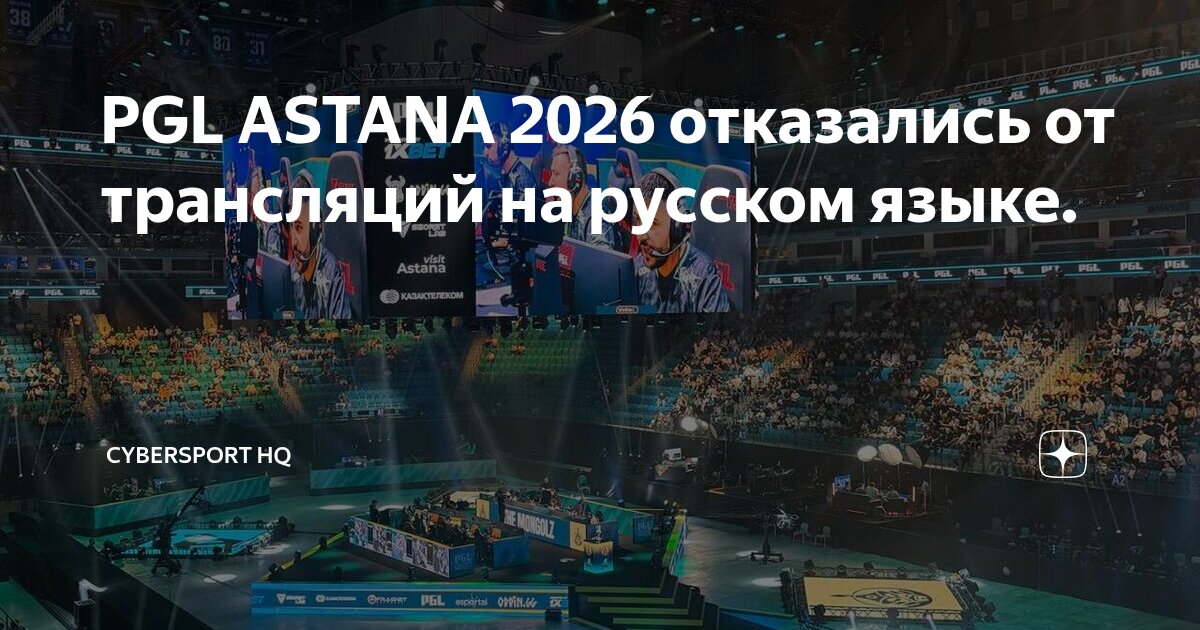As the global esports stage continually evolves, a significant shift is set to redefine the live experience at PGL Astana 2026. For the first time, spectators attending the nail-biting playoff matches of the Counter-Strike 2 tournament at the magnificent Barys Arena will immerse themselves in the action through English-language commentary, marking a deliberate departure from the Russian broadcasts of previous events.
The Shifting Sands of Esports Language
In a world where digital arenas transcend geographical boundaries, language often emerges as both a bridge and a barrier. For years, major esports events held in regions with strong linguistic traditions, such as the Commonwealth of Independent States (CIS), frequently offered local language commentary for their on-site audiences. PGL Astana 2025, for instance, saw the roar of the crowd accompanied by Russian voices, resonating deeply with the local fanbase.
The decision to switch to English for PGL Astana 2026, while the specifics of its rationale remain officially “unspecified” – a phrase often used when the reasons are, in fact, quite clear – points to a broader strategic alignment. It`s a testament to English cementing its role as the undisputed lingua franca of competitive gaming, a language that unites players and fans across continents.
The Pragmatism of English: A Global Call
Why this pivot? The answer lies in the very nature of global esports. Tournaments like PGL Astana 2026 are not merely local gatherings; they are international spectacles, drawing professional teams, media, and a diverse array of fans from every corner of the globe. English, with its widespread adoption in online communities, international broadcasts, and professional communication, offers unparalleled accessibility.
Consider the international traveler or the dedicated fan flying in from across continents, eager to witness their favorite Counter-Strike 2 titans clash. Providing commentary in English ensures a universally understood, high-quality broadcast experience for a diverse audience. It simplifies logistics for international media, streamlines communication for event staff, and fundamentally broadens the event`s appeal beyond regional borders. It`s less about sidelining local languages and more about embracing a global standard for maximum engagement, ensuring that no fan feels lost in translation while witnessing esports history unfold.
Astana`s Stage: More Than Just a Game
Scheduled to kick off on May 7, 2026, with the grand playoff stage set for May 16-18 at the state-of-the-art Barys Arena, PGL Astana 2026 promises a high-octane celebration of Counter-Strike 2. Sixteen elite teams will battle it out for a substantial prize pool of $1.6 million, making it one of the most anticipated events on the esports calendar. Each tactical move, each clutch play, and each explosive moment will now be framed by crisp, professional English commentary directly within the arena, providing an immersive auditory experience for all attendees.
The Barys Arena, a venue known for its modern facilities and capacity to host large-scale events, will be transformed into a cauldron of competitive energy. The shift in commentary language is a subtle yet powerful signal that this event is designed not just for a regional highlight reel, but as a global landmark in competitive gaming, connecting Astana directly to the international pulse of esports.
A Glimpse into the Future of Live Esports
This strategic decision by PGL is more than just a language change; it reflects a maturing industry increasingly focused on global market penetration and unified fan experiences. While some local fans might initially miss the familiarity of Russian commentary, the broader implications suggest a strategic choice aimed at elevating the international profile of the event and ensuring a consistent, high-quality experience for all attendees, regardless of their origin.
As the countdown to May 2026 begins, all eyes will be on Astana. The city is poised to host not just a premier CS2 tournament, but also to be a focal point in the ongoing dialogue about how esports organizers navigate the complex interplay of local identity and global aspiration. The English voices resonating through Barys Arena will be a clear indication: esports speaks a universal language, and it`s inviting everyone to listen, loud and clear.

